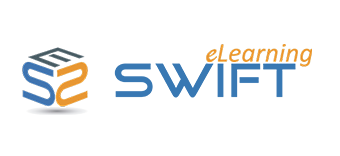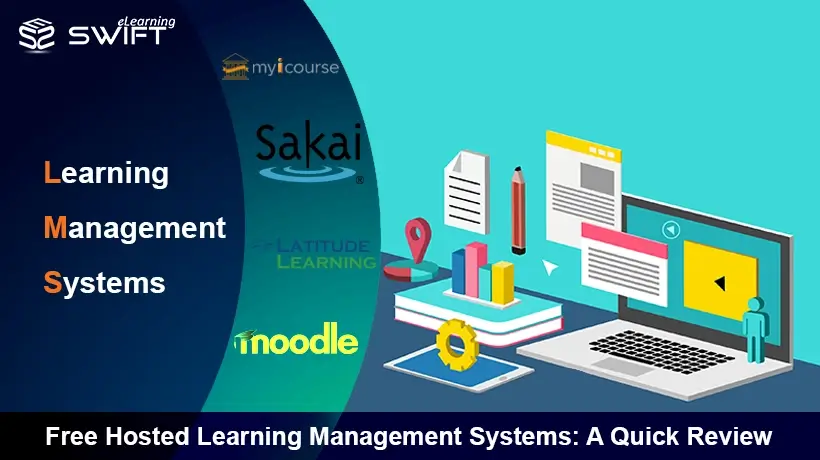What is a Learning Management System (LMS)?
A Learning Management System (LMS) is a centralized software for administration, documentation, tracking, reporting, and delivering educational courses or training programs.
How did organizations train employees before eLearning, and what challenges did they face?
Let’s go back to the times when there was no eLearning in the organizations. Those were the days where huge training materials piled up in organizations for employee training.
Be it a technical training, onboard training, soft skills training or products and services training, highly qualified and professional trainers were appointed to conduct all these training sessions.
Also evaluating employee performance and gaining learning insight of any individual was the challenging task for most of the organizations.
How does Bring Your Own Device (BYOD) affect eLearning performance and ROI?
Whereas, now the employee goes to the training sessions with their own devices since most of the companies offer BYOD (Bring Your Own Device) for employee training.
This training involves tailor-made eLearning courses that are built using eLearning authoring tools as per the business requirement.
Some of the key features in the current platform providing employee performance and helping out in calculating the company’s ROI.
The reason for change-over in the present situation occurred not only by implementing eLearning in the organizations but also by applying effective learning management systems as well.
What’s the difference between free and paid LMS options?
Learning Management Systems (LMS), the decision between free and paid options depends on your specific needs.
Free LMS options are a good starting point, offering essential features without financial commitments. On the other hand, paid LMSs provide advanced functionalities, comprehensive support, and a more personalized learning experience.
What are the top 4 free LMSs in the market?
In the market, you will find LMS companies offering free learning management system rather than a subscription-based model.
Free and paid LMSs will vary obviously with the features and support they offer. Here is a list of top 4 free Learning Management Systems.
Moodle:
Moodle is an open-source Learning Management System (LMS) widely used for creating and delivering online courses.
An easy to use open source software adopted by some of the enterprises to cater to the needs of online training.
With this LMS you can create bulk courses, track the user performance and generate the dynamic reports as well.
Limitation: You can add up to 50 users in the free plan.
MyiCourse:
MyiCourse is an online FREE LMS platform that allows you to create public and private college with different accessible features.
Students can register in a public college whereas it is restricted in private college.
As this LMS consists inbuilt course creation option, you can create and customize courses to suit your learner requirement.
Limitation: Courses in public college are free and unlimited courses can be uploaded with unlimited number of users.
Courses in private college will have access up to 100 users with 100 courses.
Sakai:
Sakai is an open-source learning management system (LMS) designed to support collaborative teaching, learning, and research in educational institutions.
A Java-based open source LMS which is managed by institutional community members along with the individuals.
This LMS mainly focus to provide learning and teaching to the academic institutions rather than corporate training.
It is available in 20 different languages to reach out globally. It has responsive user interface, lessons tool enhancement, intelligent feedback, and mathematical notions.
Limitation: Suits well for small businesses since there is no support of plug-ins and add-ons.
LatitudeLearning:
LatitudeLearning is a cloud-based learning management system (LMS) designed to assist organizations in delivering and managing training programs.
A free LMS that gives access to customize the learning platform as per the needs and the size of the business.
It allows you to create a common community where learners can do social learning, means peer-to-peer sharing of the knowledge.
This LMS is explicitly designed to meet the specific challenges of training managers, sales team and service channel executives.
Limitation: It offers free up to 100 learners and any third party add-ons will be charged.
What are the benefits with our Learning Management System?
Our Learning Management System (LMS) offers elegant features to enhance your training program.
1. Easy To Use: Offers intuitive interface, you can easily create, deliver, and sell online training courses.
2. Customization and Branding: It is highly customizable; allowing you to fully customize the logo, color scheme, themes and layout to suit your company branding.
3. Tracking and Reporting: With the reporting functionality, you can generate: summarized reports, User logs, course status and more.
4. Cost: our LMS is a free Learning Management System with no upfront costs.
5. Sell Your Curses Online: Our LMS provides an ecommerce platform to sell and manage your eLearning courses online.
6. Elearning Industry Standards: Our LMS supports eLearning accessibility standards such as: AICC, SCORM and xAPI.
7. Content Management: Efficient content management allows easy upload, organization, and updating of course content. Enhance versatility with support for various content types, including MP4 videos, SCORM, quizzes, PPT presentations, and other documents.
8. Collaboration and Communication Tools: Interactive learning benefits from features like discussion forums, chat functionalities, and collaborative document editing, fostering engagement and a sense of community among learners.
9. Integration Capabilities: Check if the LMS seamlessly integrates with other tools and systems, like video conferencing or analytics platforms, to enhance overall functionality.
10. Mobile Compatibility: Ensure the LMS is responsive, providing a consistent user experience across various devices in today’s multi-device learning landscape.
11. Scalability and Flexibility: Choose an LMS that grows with your organization or educational institution, offering scalability and flexibility for customization.
12. Compliance and Security: For sensitive data or regulatory requirements, ensure the LMS adheres to industry standards for data protection and offers robust security features.
13. Support and Training: Opt for an LMS with reliable customer support and comprehensive training resources to ensure smooth implementation and ongoing usage.
14. Assessment and Tracking: A strong LMS should offer tools for creating assessments and tracking learner progress, including features like quizzes, exams, and detailed analytics for monitoring individual and overall performance.
Our E-learning Services
Custom Elearning Development
We specialize in creating customized e-learning content and training materials for online learning platforms, specifically designed to meet the needs and objectives of individual clients or organizations.
Learn more about our Custom Elearning Development.
Elearning Translation Services
We specialize in adapting educational content, courses, and training materials from one language to another for online learning purposes.
Learn more about our Elearning Translation Services.
FREQUENTLY ASKED QUESTIONS (FAQS)
What is learning management system (LMS)?
A Learning Management System (LMS) is a software application or platform that facilitates the administration, delivery, tracking, and management of educational content and training programs.
What is a free hosted learning management system (LMS) for employee training?
A free hosted LMS is an online platform that enables organizations to deliver, manage, and track employee training without incurring costs for hosting. It provides a centralized hub for learning materials and administration.
How do free hosted LMS platforms benefit employee training?
These platforms offer cost-effective solutions for training initiatives, enabling easy access to learning materials anytime, anywhere. They streamline administration, tracking progress, and customization of training content.
Which free hosted LMS platforms are more beneficial for me?
Popular options include MoodleCloud, Google Classroom, and Canvas Free for Teachers. Each has its strengths in terms of features, user interface, and scalability, catering to different organizational needs.
When should organizations consider using free hosted LMS for employee training?
When aiming for scalable, cost-efficient training solutions, especially for small to medium-sized businesses or those starting with e-learning initiatives, adopting a free hosted LMS can be advantageous.
Who can benefit from utilizing free hosted LMS for employee training?
Organizations of various sizes, including startups, small businesses, and nonprofits, seeking accessible and manageable solutions for training their workforce, can benefit from these platforms.
How can free hosted LMS platforms be accessed for employee training?
These platforms are accessible online, requiring only an internet connection and compatible devices. Users can access them from anywhere, facilitating remote learning and flexibility in training.
Why are free hosted LMS platforms becoming popular for employee training?
The rising need for remote work and training, coupled with cost constraints, drives the popularity of these platforms. They offer accessible, scalable, and customizable solutions for diverse training needs.
How customizable are free hosted LMS platforms for employee training?
Most free hosted LMS platforms offer varying degrees of customization, allowing organizations to tailor courses, branding, and user experience to align with their training objectives and company culture.


